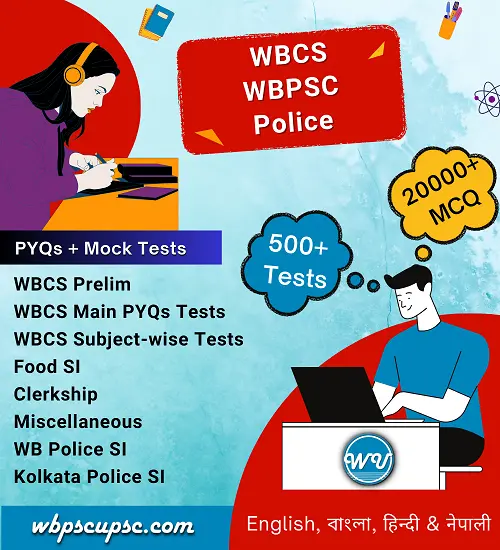February 19, 2020
President of India
Contents
>>>>>
- Articles 52 to 73 in Part V
- Part V deals with the Union Executives.
- The Union executive consists of
- President
- Vice-President
- Prime Minister
- Council of ministers
- Attorney general of India
- The President of India is the head of the Indian State.
- He is the first citizen of India.
- He acts as the symbol of unity, integrity and solidarity of the nation.
- But the President of India is only a nominal executive.
>>>>>>
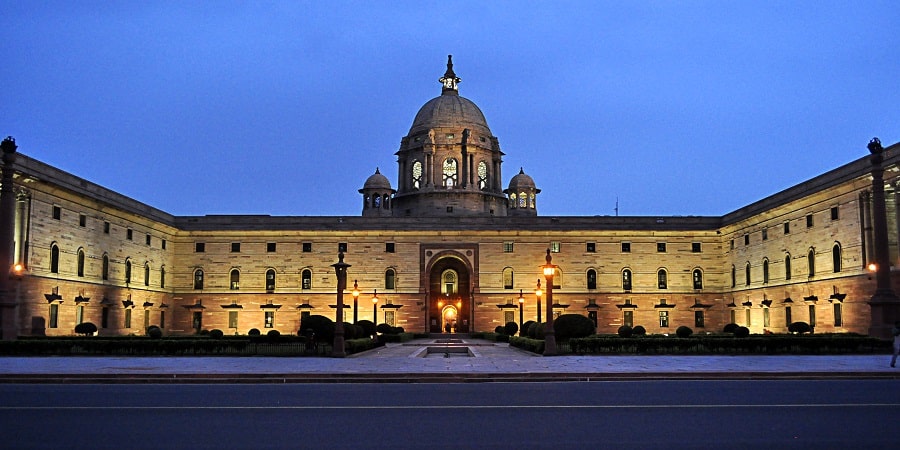
>>>>>>
Election of the President of India
- Article 54
- The President is elected by members of electoral college consisting of:
- Elected members of both the Houses of Parliament
- Elected members of the legislative assemblies of the states
- Elected members of the legislative assemblies of the Union Territories
- Value of the vote of an MLA
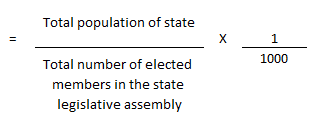
- Value of the vote of an MP
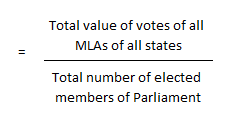
- Value of vote of MLA of UP is highest & value of vote of MLA of Sikkim is lowest.
- Value of the vote of MP is more than value of MLA.
- Election is held in accordance with
- System of proportional representation
- Means of the single transferable vote
- Secret ballot
- Each member of the electoral college is given only one ballot paper.
- A candidate, must secure a fixed quota of votes to became the President of India.
- Electoral quota

- Single transferable vote process continues till a candidate secures the required quota.
- Decision of Supreme Court is final in the case of any doubts and disputes regarding election of the President.
- The indirect election of the President is in harmony with the parliamentary system of govt.
Qualifications for Election as President
- President should be a citizen of India.
- He should have completed 35 years of age.
- He should be qualified for election as a member of the Lok Sabha.
- President should not hold any office of profit under the Union or state govt. or any local or public authority.
- The nomination of a candidate must be subscribed by min 50 electors as proposers and 50 electors as seconders.
- Every candidate has to make a security deposit of Rs.15,000 in the Reserve Bank of India.
- Security deposit forfeited in case the candidate get less than 1/6th of the votes polled.
Oath or Affirmation by the President
- to faithfully execute the office
- to preserve, protect and defend the Constitution and the law
- to devote himself to the service and well-being of the people of India
- The oath is administered by the CJI or the seniormost judge of the Supreme Court available, in his absence.
>>>>>>
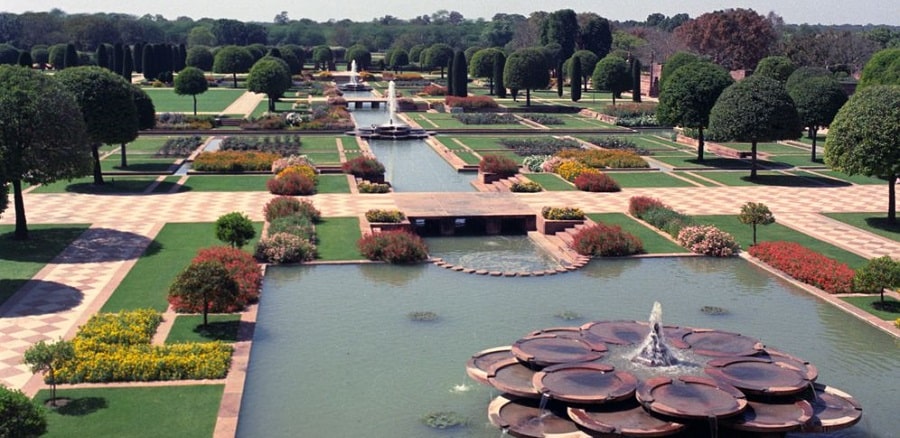
>>>>>>
Conditions of President’s Office
- President should not be a member of either House of Parliament or state legislature.
- In the case of a member, must vacated his seat in that House on the date on which he enters upon his office as President.
- President should not hold any other office of profit.
- He is entitled, without payment of rent, to the use of his official residence (Rastrapathi Bhavan).
- President is entitled to such emoluments, allowances and privileges as may be determined by Parliament.
- His emoluments and allowances cannot be diminished during his term of office.
- Privileges and immunities to the President
- He enjoys personal immunity from legal liability for his official acts.
- During his term of office, he is immune from any criminal proceedings, even in respect of his personal acts.
- He cannot be arrested or imprisoned.
- Civil proceedings can be instituted against him during his term of office in respect of his personal acts after giving 2 months’ notice.
Term of President’s Office
- The President holds office for a term of 5 years from the date on which he enters upon his office.
- He can resign at any time by addressing the resignation letter to the Vice-President.
- President can also be removed from the office by the process of impeachment.
- President is also eligible for re-election to that office.
- He may be elected for any number of terms.
- In USA, a person cannot be elected as President more than twice.
Impeachment of President
- Article 61
- Impeachment of President can be initiated for ‘violation of the Constitution’.
- Constitution does not define the meaning of ‘violation of the Constitution’.
- The impeachment charges can be initiated by either House of Parliament.
- These charges should be signed by 1/4th members of that House.
- 14 days’ notice should be given to the President.
- Impeachment resolution must passed by a majority of 2/3rd of the total membership of that House.
- Then it is sent to the other House, which should investigate the charges.
- The President has the right to appear and to be represented at such investigation.
- If the other House also sustains the charges and passes the impeachment resolution by a majority of 2/3rd of the total membership, then the President stands removed from his office.
- Impeachment of President
- It is a quasi-judicial procedure.
- Nominated members of either House of Parliament can participate.
- Elected members of the legislative assemblies of states and the UTs do not participate.
- No President has so far been impeached.
Vacancy in the President’s Office
- A vacancy can occur in following ways:
- On the expiry of his tenure of 5 years.
- By his resignation.
- On his removal by the process of impeachment.
- By his death.
- when he becomes disqualified
- For holding office of profit.
- His election is declared void by SC.
- An election to fill the vacancy must be held before the expiration of the term.
- The outgoing President continues to hold office in case of any delay in conducting the election.
- He continues beyond his term of 5 years until his successor assumes charge.
- If case of resignation, removal, death or disqualification
- Election to fill the vacancy should be held within six months.
- Newly-elected President remains in office for a full term of 5 years.
- When a vacancy occurs Vice-President acts as the President.
- If sitting President is unable to discharge his functions
- Vice-President acts as the President.
- In case the office of Vice-President is vacant, the CJI acts as the President.
- If the office CJI is also vacant, the seniormost judge of the SC available acts as the President.
>>>>>>
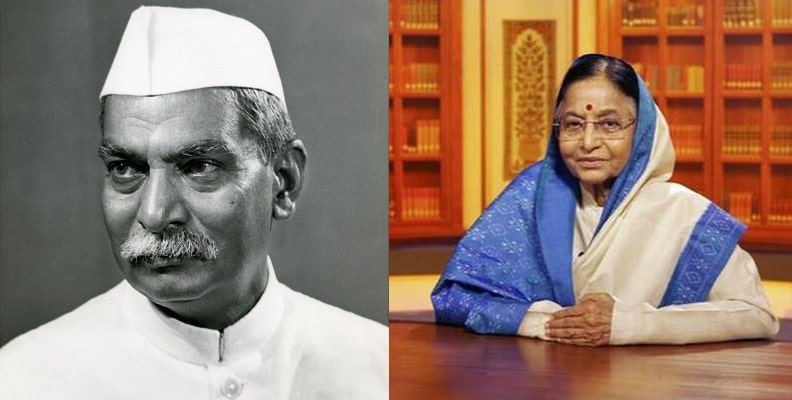
>>>>>>
Powers & Functions of the President
- Executive powers
- Legislative powers
- Financial powers
- Judicial powers
- Diplomatic powers
- Military powers
- Emergency powers
Executive Powers
- All executive actions of the Govt. of India are formally taken in the name of President.
- President can seek any information relating to the administration of the Union
- He can ask for proposals for legislation from the prime minister.
- President directly administers the UTs through administrators appointed by him.
- He can declare any area as scheduled area.
- He has powers regarding administration of scheduled areas and tribal areas.
Pardoning Power
- Article 72
- President may grant pardons to persons who have been tried and convicted of any offence .
- Punishment or sentence is for an offence against a Union Law
- Punishment or sentence is by a court martial (military court)
- Sentence is a sentence of death
- Pardoning power of the President is independent of the Judiciary.
- It is an executive power.
- President while exercising this power, does not sit as a court of appeal.
- Types of pardoning power
- Pardon – complete release the convict from all sentences.
- Commutation – giving a lighter form of punishment by changing its character.
- Remission – reducing the period of sentence without changing its character.
- Respite – awarding a lesser sentence due to some special facts
- such as the physical disability of a convict
- pregnancy of a woman offender
- Reprieve – stay of the execution of a sentence for a temporary period
- Purpose of reprieve is to enable the convict to have time to seek pardon or commutation from the President.
- The petitioner for mercy has no right to an oral hearing by the President.
- President can examine the evidence afresh and take a view different from the court.
- The power is to be exercised by the President on the advice of the union cabinet.
- President is not bound to give reasons for his order.
- President can afford relief not only from a sentence that he regards as unduly harsh but also from an evident mistake.
- Supreme Court cannot give guideline for exercising of power by the President.
- This power of President is not subject to judicial review.
- Judicial review can be done where the presidential decision is arbitrary, irrational, mala fide or discriminatory.
- Petitioner cannot file another petition, if one petition for mercy has been rejected by the President.
Powers to Appoint
- Every appointment of union govt. is made in the name of president.
- Prime minister of India
- Council of Ministers
- Attorney General of India
- Comptroller & Auditor general of India
- Judges of Supreme Court & High court
- Governor of the states & administrators of UTs
- Finance commissioner & its members
- Members of UPSC & JPSCs
- Chief election commissioner & its members
- Chairman & members of SC & ST of commissions
- Inter-state council
Legislative Powers
- President can summon or prorogue the Parliament.
- He can dissolve the Lok Sabha.
- He can also summon a joint sitting of both the Houses.
- President address the Parliament at the commencement of the 1st session after each general election and the first session of each year.
- He can send messages to the Houses of Parliament, regarding any pending bill.
- He can appoint any member of the Lok Sabha to preside over its proceedings when the offices of both the Speaker and the Deputy Speaker fall vacant.
- President can also appoint any member of the Rajya Sabha to preside over its proceedings when the offices of both the Chairman and the Deputy Chairman fall vacant.
- He nominates 12 members of the Rajya Sabha and 2 members to the Lok Sabha from the Anglo-Indian Community.
- He decides on questions as to disqualifications of members of the Parliament, in consultation with the Election Commission.
- His prior recommendation or permission is needed to introduce certain types of bills in the Parliament.
Ordinance Making Power
- Article 123
- Those are in the nature of temporary laws.
- It is the most important legislative power of the President.
- It empowers the President to promulgate ordinances when
- Both the Houses of Parliament are not in session
- Either of the two Houses of Parliament is not in session
- An ordinance can also be issued when only one House is in session because a law can be passed by both the Houses.
- In Cooper case, (1970), the Supreme Court held that the President’s satisfaction can be questioned in a court on the ground of malafide.
- An ordinance can be issued only on those subjects on which the Parliament can make laws.
- Ordinance is subject to the same constitutional limitation as an act of Parliament.
- Ordinance must be laid before both the Houses of Parliament when it reassembles.
- If the ordinance is approved by both the Houses, it becomes an act.
- If Parliament takes no action, ordinance ceases to operate after 6 weeks from the reassembly of Parliament.
- If both the Houses of Parliament disapproving ordinance, it ceases to operate.
- The President can also withdraw an ordinance at any time.
- Power of ordinance-making is not a discretionary power.
- President can promulgate or withdraw an ordinance only on the advice of the council of ministers.
- An ordinance can be retrospective, and may come into force from a back date.
- It may modify or repeal any act of Parliament or another ordinance.
- It can alter or amend a tax law also.
- Ordinance cannot be issued to amend the Constitution.
- D C Wadhwa case (1987) Supreme Court held that the exceptional power of law-making through ordinance cannot be used as a substitute for the legislative power of the state legislature.
Discretionary Power of President
- President has no constitutional discretion power.
- He has some situational discretion power.
- Discretion power of President mean that he can act without the advice of the council of ministers.
- President can act on his discretion
- Appointment of Prime Minister when no party has a clear majority in the Lok Sabha
- Prime Minister dies suddenly without any obvious successor
- Dismissal of the council of ministers when it cannot prove the confidence of the Lok Sabha.
- Dissolution of the Lok Sabha if the council of ministers has lost its majority
Reports laid before Parliament by the President
- Auditor General Report relating to accounts of govt. of India
- Recommendation made by Finance commission
- Report of UPSC, explaining the reasons where any advice of the commission has not been accepted.
- Report of National commission for SCs & STs
- Report of special officers for linguistic minorities
Financial Powers
- Money bills can be introduced in Parliament only with prior recommendation of President.
- He causes to be laid before the Parliament the annual financial statement.
- No demand for a grant can be made except on his recommendation.
- President can make advances out of the contingency fund of India to meet any unforeseen expenditure.
- He constitutes a finance commission after every 5 years to recommend the distribution of revenues between the Centre and the states.
Judicial Powers
- President appoints the Chief Justice and the judges of Supreme Court and High courts.
- He can seek advice from the Supreme Court on any question of law or fact.
- The advice tendered by the Supreme Court is not binding on the President.
Diplomatic Powers
- The international treaties and agreements are negotiated and concluded on behalf of the President.
- They are subject to the approval of the Parliament.
- President represents India in international forums and affairs
- He sends and receives diplomats like ambassadors, high commissioners, etc.
Military Powers
- President is the supreme commander of the defence forces of India.
- In that capacity, he appoints the chiefs of the Army, the Navy and the Air Force.
- He can declare war or conclude peace, subject to the approval of the Parliament.
Emergency Powers
- President can declare three types of emergencies
- National Emergency (Article 352)
- President’s Rule (Article 356 & 365)
- Financial Emergency (Article 360)
>>>>>
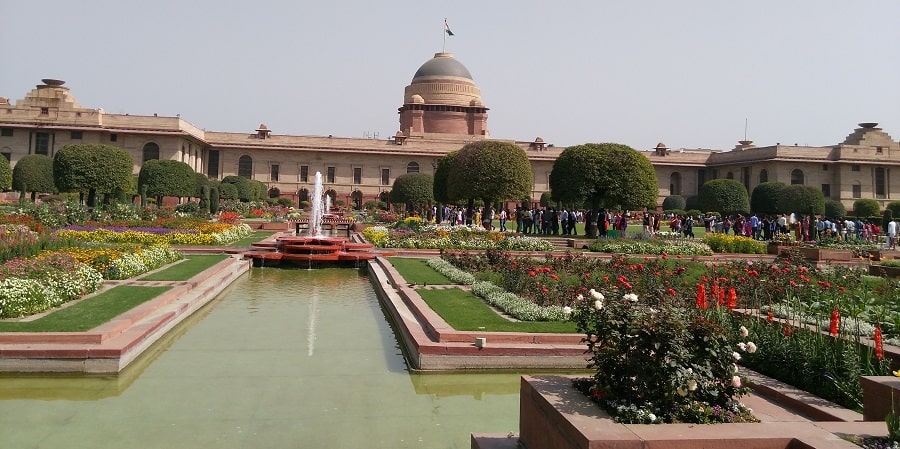
>>>>>
Veto Power of the President of India
- When a bill is sent to the President after it has been passed by the Parliament, he can:
- give his assent to the bill, or
- withhold his assent to the bill, or
- return the bill (if not a money bill) for reconsideration of the Parliament.
- If the bill is passed again by the Parliament, with or without amendments, the President has to give his assent to the bill.
- The object of conferring this power on the President is two-fold
- to prevent hasty and ill-considered legislation by the Parliament.
- to prevent a legislation which may be unconstitutional.
- President has no veto power in respect of a constitutional amendment bill.
- 24th Constitutional Amendment Act of 1971 made it obligatory for the President to give his assent to a constitutional amendment bill
- American President qualified veto power, which is not available to Indian President.
Absolute Veto
- It refers to the power of the President to withhold his assent to a bill passed by the Parliament.
- This veto is exercised in the following two cases:
- With respect to private members’ bills
- With respect to the govt. bills when the cabinet resigns and the new cabinet advises the President not to give his assent to such bills.
- Absolute veto power used
- President Dr. Rajendra Prasad – 1954
- President R Venkataraman – 1991
Suspensive Veto
- President exercises this veto when he returns a bill to Parliament for reconsideration.
- If the bill is passed again by the Parliament, with or without amendments, the President has to give his assent to the bill.
- So the presidential veto is overridden by a re-passage of the bill by the same ordinary majority.
- In USA it need a higher majority.
- President does not possess this veto in the case of money bills.
- The President can either give his assent to a money bill or
- withhold his assent to a money bill but cannot return it for the reconsideration
- of the Parliament. Normally, the President gives his assent to money bill as it
- is introduced in the Parliament with his previous permission.
Pocket Veto
- President simply keeps the bill pending for an indefinite period.
- Constitution does not prescribe any time-limit to President to take decision with respect to a bill.
- In USA, President has to return the bill for reconsideration within 10 days.
- So, the pocket of the Indian President is bigger than that of the American President.
- In 1986, President Zail Singh exercised the pocket veto with respect to the Indian Post Office (Amendment) Bill.
Presidential Veto over State Legislation
- Governor can reserved a state legislature bill for consideration of the President.
- The President can
- Give his assent to the bill, or
- Withhold his assent to the bill, or
- Direct the governor to return the bill for reconsideration of the state legislature.
- It is not obligatory for the President to give his assent even if the bill is again passed by the state legislature.
- If the case of a money bill, President can’t return the bill.


